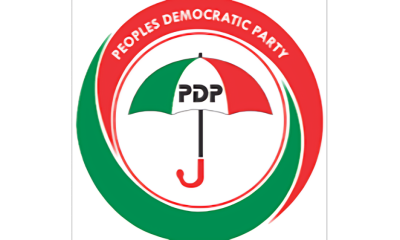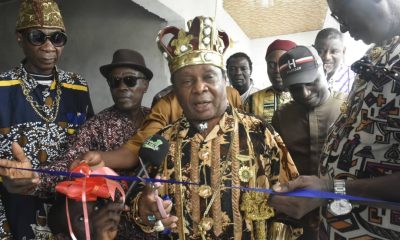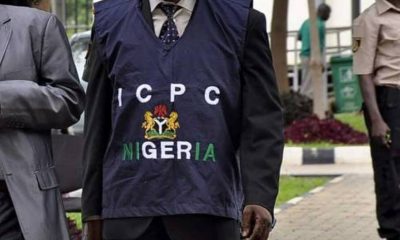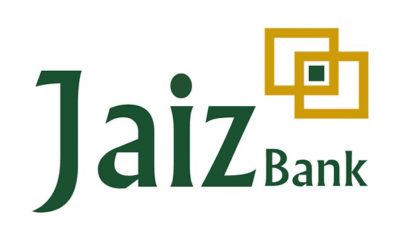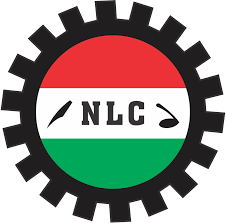COVER
Ndigbo: What If Peter Obi Does Not Win the 2023 Presidential Election?
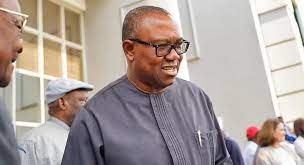
By Ugo Chukwuka
Ndigbo in Nigeria owe to themselves a sincere and unemotional answer to this question before it is too late: what if Peter Obi does not win the 2023 presidential election? This is precisely the question the governor of Anambra state, Professor Chukwuma Soludo, courageously confronted in his piece which he titled, ‘History Beckons and I will not be Silent (Part 1)’.
But rather than sit back and ponder over the strong possibility of Obi not emerging and the attendant implication for Ndigbo, the issue was treated with sentiment driven by media frenzy and attacks.The emotional outbursts that greeted Soludo’s timely intervention can be summarized as an insinuation that the governor of Anambra state does not want Peter Obi to become President of Nigeria.
Such outbursts remain a classic case of ad hominem – insulting and making insults against the person while ignoring the issues put forth.When people abandon the message to attack the messenger, it becomes dangerously diversionary and this is now a rising political culture that is further alienating Ndigbo from mainstream politics in Nigeria. This was the aim of those who pushed the narrative that Soludo does not want Peter Obi to become president of Nigeria and drove the media razzmatazz to an attempt to drown out the real issues contained in the erudite professor’s well-thought-out treatise and advice to Peter Obi in particular and Ndigbo in general.
Nonetheless, truth is both eternal and sacred. Though Peter Obi has managed to thrust himself forth as one of the four contenders to the office of the president of Nigeria, it is still obvious that he is the one playing catch-up and hasn’t quite reached the level where he and his Labour party can be rationally evaluated as having developed the capacity already possessed by the ruling APC, and the main opposition PDP.
The capacity in question is what the two behemoth political parties (PDP and APC) gained from their inception and experience in the field since 1998. (Note that APC is as old as PDP because the legacy political blocks that formed the APC are as old as the PDP and like the PDP, PAC has held the office of the President, State governors, and LG Chairmen. Yes, PDP and APC have produced Governors, Senators, the Senate President, the Speaker of the House of Reps/members, State assembly members, and Local government chairmen. Labour has not).
Sadly, Nigerians keep hearing the Labour party and its candidate shouting at every turn, ‘people are the structure’. This claim is not only fallacious but also smacks of deep ignorance of party democracy as well as how political parties function in an election. By their admission, by the time Peter Obi joined the Labour party, the party was adjudged as not being present in up to 10% of Nigeria, particularly in the Wards and Polling units where voting and initial coalition take place.
Today, barely 70 days to the presidential election, Labour though has made some progress and inroads, evidently has not advanced beyond 30% in covering the wards and polling units in Nigeria, whereas up to 80% of the grounds needed to be covered effectively by any political party that hopes to produce the president of Nigeria. Confirmatory of this position is that days ago, an open appeal by the Labour party for volunteers as LG Ward and Polling units’ coordinators for the party surfaced online.
So, when Soludo says that Peter Obi is not positioned or primed to win, he is right and knows what he is talking about. Peter Obi is without a doubt popular, particularly in the Southern part of Nigeria. But the core north, which controls over 40% of the votes, has not heard much of Peter Obi. A few who have heard are not likely to abandon their regional strategic interests to support a Peter Obi presidency that has not shown how such interests would be protected. What is more, Obi and Labour are not reaching out enough or negotiating enough with the critical stakeholders. They rely on the social media-generated frenzy to create the false impression that an Obi victory is already fait accompli.
Ndigbo, including Soludo, genuinely want Peter Obi to win. But the question – what if Obi does not win? – must not also be swept under the carpet. Unless they have completely been misled and lost their way in Nigerian politics, there are very existential conditions, which Ndigbo must put in perspective while taking political decisions at this moment. These are issues that shape their very existence and impact their future. Being emotional about such a lifesaving decision can only exacerbate an already bad situation and make the future bleaker, as happened to Ndigbo in 2015 and 2019 when Ohanaeze led the Igbo people to shut the door against President Muhammadu Buhari.
Recall that Ohanaeze leadership in 2014 under its former President General Chief Garry Igariwey and former Ohanaeze Ndigbo Secretary General, Dr. Joe Nworgu openly rejected the request by General Muhammadu Buhari to hold a meeting with the apex Igbo body. Ohanaeze’s leadership refused to engage, accusing Buhari of marginalizing the South-East as the Petroleum Trust Fund (PTF) chairman set up by the Sani Abacha regime. Ohanaeze sentimentally also noted they would not engage with Buhari because when Shehu Shagari was overthrown in 1983, Shagari, the number one person in that toppled civilian administration, was placed under house arrest while Ekwueme, the number two, who had no constitutional functions, was imprisoned.
Ohanaeze by taking this hard stand inadvertently declared Buhari an enemy of Ndigbo despite Buhari being a frontrunner and possible winner for the office of the President of Nigeria. The Igbo ethnic group thus refused to present their demands to the APC candidate who later won and turned his back also on Ndigbo. It is an impolitic move that the Igbo people later regrettably paid for and still pay dearly for.
As if that was not enough, again in 2019, Ohanaeze under Nnia Nwodo as President General did not only endorse the Atiku/Obi ticket of the PDP but again refused to give Buhari an audience despite being an incumbent president seeking reelection. Buhari was supposed to engage Ohanaeze the day he came down to Anambra state to commission Zik’s Mausoleum, which he completed.
Strangely, Ohanaeze PG rather than receive Buhari as a co-host to the historic moment, was at Nike Resorts in Enugu, endorsing Atiku Abubakar and Peter Obi’s ticket of the Peoples Democratic Party, PDP. Nnia Nwodo said then that after a critical and dispassionate appraisal of the issues and the visible fault lines in our polity, including the analysis of the election manifestos of the various contesting parties, especially with regards to the restructuring of the federation and continued relevance of the Ndigbo in the Nigerian geopolitical space, Ohanaeze resolved to endorse the Atiku/Obi ticket. Furthermore, PDP nominated an Igbo son, Peter Obi, as the vice presidential candidate to give Ndigbo an opportunity for inclusivity.
Ohanaeze as a socio-cultural organization has no business endorsing candidates. Whenever the Igbo apex body does that, it sends the message that Ndigbo do not want anything to do with other presidential candidates. This is very wrong and has contributed to the quagmire Ndigbo have found themselves in the current democratic dispensation.
This needless and provocative endorsement is repeating itself in 2022. Ohanaeze led by Prof. George Obiozor has just endorsed Peter Obi and is urging Ndigbo not to support any other presidential candidate. This is yet another strategic blunder given the fact both Atiku and Tinubu stand stronger chances of winning in the 2023 presidential election when the critical factors that combine to produce Nigeria’s president are dispassionately factored into the equation.
So, the nagging question again: in the likely event that Peter Obi does not win, what then will be the fate of Ndigbo in post-2023 Nigeria given the fact that the major ethnic group is not engaging and has indeed foreclosed engaging the two likely presidents of Nigeria, Atiku, and Tinubu? The ominous consequences of Atiku or Tinubu emerging with the impression that Ndigbo shut him out may continue the Buhari/APC policy of Igbo marginalization and exclusion, which as shown, is a self-inflicted injury.
Zik’s way remains the best way for Ndigbo. Dr. Nnamdi Azikiwe’s politics of diplomacy and compromise fetched the Old Eastern Region positions in the powerful executive, legislative, judicial, bureaucratic, and defence positions in the First Republic. The approach also secured the Southeast positions of the Vice President and Speaker of the House of Reps less than a decade after the civil war as well as several plum positions that ensured visibility and full representation of Ndigbo in the scheme of things as well as being the springboard for region-wide development.
All Igbo patriots should be extremely worried about the currently raging ‘nzogbu-nzogbu’ (do-or-die) mentality, which seems to have displaced the time-honoured Igbo culture of political engagement, consensus building, and common sense. There is an urgent need to turn away from the politics of self-adulation, uncritical echo chamber, and herd mentality and re-embrace once again the politics of dialogue and robust debate.
Igbo political leaders must back Soludo’s intervention and engage by opening up negotiations with the PDP and APC presidential candidates to ensure the Igbo pride of place and relevance in the coming government. This is the way to also ensure the youth restiveness, separatist agitations, and insecurity that has bedeviled the South-East of late is stopped from escalating beyond 2023.
No major ethnic group in Nigeria carries all its eggs in one basket or forecloses negotiations in an election where there is no clear likely winner. A word, they say, is enough for the wise.
COVER
DAILY ASSET Appoints Torough, Editor, Names Eze, Deputy

By Laide Akinboade, Abuja
As part of efforts to reposition the newspaper for optimum corporate performance, the management of Asset Newspapers Limited, Publishers of DAILY ASSET, has announced the appointment of David Torough as the Editor of the Abuja-based national daily.
A statement by the management said the appointments were part of the company’s new strategy to further penetrate the various states in the country and raise its readership and patronage.
“DAILY ASSET is widely acceptable across the country and to maintain our leadership position, we need to increase management presence, hence the need to create new Bureau offices in some locations outside Abuja and Lagos,” the statement quoted the Publisher/ Editor-in-Chief, Dr Cletus Akwaya to have said.
In a statement yesterday, Publisher and Editor-in-Chief of the fast-growing daily, Dr. Cletus Akwaya said the appointment was part of the new strategy to properly situate the paper for better productivity.
“DAILY ASSET has a commitment with the Nigerian people. We are determined to weather the storm and give Nigerian readers a Newspaper that satisfies their yearnings and reading pleasure and we can only do that with the right set of professionals,” the statement said.
Akwaya, a former Commissioner of Information from Benue State said the difficult times being faced by Nigerians posed a great challenge to the media as the people deserved credible information with which to make choices.
“We have a bond with the people, to offer credible information at all times in the best tradition of the Nigerian Press and on this scale of objectivity, truth and fairness, we pledge to remain steadfast no matter the challenges,” Akwaya was quoted to have said.
He said the newspaper will maiantin its daily print run and circulation to all states of the federation and urged advertisers to take advantage of the deep penetration of the Daily Asset brand to send their messages.
Torough, the new Editor has had a steady rise in the Newspaper in the last five years.
A graduate of Mass communication of the Benue State University, Makurdi, Torough joined the company in 2022 as Benue State Correspondent. He was spotted for his brilliance and redeployed to Abuja the following year and promoted to Deputy News Editor. He was subswuently named Deputy Editor of the paper, a position he held until the recent appointment.
Torough has attended several journalistic workshops and trainings to properly equip himself for the task ahead.
The statement also said the Management named Eze Okechukwu as Deputy Editor.
Before his elevation as Deputy Editor, Eze has been Deputy Politics Editor and DAILY ASSET Newspaper correspondent covering the Senate, having joined the organization in 2021.
Born on March 10, 1975, Eze holds a Masters Degree in Mass Communication from the Enugu State University of Science and Technology.
Eze began his journalism career with Daily Star, Enugu and later worked with Daily Trust Newspaper, Abuja as sports reporter.
Aside from his journalistic excellence, he has a great deal of passion for sports.
COVER
Insecurity: Northern Govs, Monarchs Seek Six-month Mining Suspension

From Ngutor Dekera, Kaduna and Aliyu Askira, Kano
Northern governors and traditional rulers yesterday called for the suspension of mining activities across the region for six months, blaming illegal mining for worsening insecurity in many states.The resolution was contained in a communiqué issued after a joint meeting of the Northern States Governors’ Forum and the Northern Traditional Rulers’ Council held at the Sir Kashim Ibrahim House, Kaduna.
The meeting, chaired by the Gombe State Governor and NSGF Chairman, Muhammadu Yahaya, had in attendance the 19 northern governors and chairmen of the 19 states’ traditional councils. The Forum expressed concern over the escalating violence in parts of the North, including the killings and abductions recently recorded in Kebbi, Kwara, Kogi, Niger, Sokoto, Jigawa and Kano states, as well as renewed Boko Haram attacks in Borno and Yobe.“The Forum extends its deepest condolences and solidarity to the governments and good people of the affected states,” the communiqué said, noting that the attacks on schoolchildren and other citizens had become “unacceptable tragedies” that required urgent collective action.It commended President Bola Tinubu for what it described as the Federal Government’s “firm response” to recent abductions and insurgency threats, especially the rescue of some abducted pupils.The governors also saluted security agencies for their sacrifices on the frontlines.“We resolved to renew our support for every step taken by the President and Commander-in-Chief to take the fight to insurgents’ enclaves in order to end the criminality,” the Forum stated.A major highlight of the meeting was the North’s renewed push for the establishment of state police, with governors and traditional rulers insisting that decentralised policing had become inevitable.“The Forum reaffirms its wholehearted support and commitment to the establishment of state police,” the communiqué added, urging federal and state lawmakers from the region to “expedite action for its actualisation.”On illegal mining, the governors said criminal mining networks were fuelling violence and providing resources for armed groups.As a corrective measure, they asked Tinubu to direct the Minister of Solid Minerals to impose a six-month suspension of mining activities in order to allow for a full audit and revalidation of licences.“The Forum observed that illegal mining has become a major contributory factor to the security crises in Northern Nigeria. “We strongly recommend a suspension of mining exploration for six months to allow proper audit and to arrest the menace of artisanal illegal mining,” it said.To strengthen the fight against insecurity, the governors also announced the creation of a regional Security Trust Fund.Under the proposed arrangement, each state and its local governments will contribute ₦1bn monthly, to be deducted at source under an agreed framework.They said the fund would help provide sustainable financing for joint operations, intelligence-driven interventions and coordinated security responses across the region.At the end of the meeting, the Forum reaffirmed its commitment to unity and collective responsibility.“Only through unity, peer review and cooperation can we overcome the pressing challenges before us,” it declared.The Forum agreed to reconvene on a date to be announced.Meanwhile, Nigeria’s worsening security crisis took a grim turn on Monday as bandits launched fresh attacks in Kano State, abducting 25 villagers, even as the Federal Government raced to secure the release of more than 300 Catholic school children kidnapped in Niger State.In the early hours of Monday, armed bandits invaded Unguwar Tsamiya—popularly called Dabawa—in Shanono Local Government Area of Kano State, whisking away nine men and two women after shooting into the air and assaulting residents. The attackers also rustled two cows.A resident lamented the community’s helplessness: “We cannot do otherwise; most of us cannot leave because we have nowhere to go. This is our place, our land and everything is here.”The assault came less than 24 hours after a similar attack on Yan Kamaye in Tsanyawa LGA, a community along the volatile Katsina border.In Niger State, National Security Adviser Nuhu Ribadu has assured distraught families of St. Mary’s Co-Education School, Kontagora that the more than 300 students and staff abducted on November 21 will return home “soon.” Ribadu, who led a high-level federal delegation to the school on Monday, said the abductees are safe, though he offered no specifics on their location or the status of rescue operations.According to Daniel Atori, spokesman for the Catholic bishop overseeing the school, the NSA reassured officials: “The children are where they are and will come back safely.”The St. Mary’s attack is part of a worrying resurgence of mass kidnappings reminiscent of the 2014 Chibok schoolgirls’ abduction. Security analysts warn that banditry has evolved into a “structured, profit-seeking industry,” with hundreds of Nigerians abducted in November alone.The Kontagora school abduction occurred the same week 25 girls were kidnapped in Kebbi State—victims who authorities say have since been rescued through “non-kinetic” means. About 50 of the St. Mary’s hostages have also managed to escape.Ribadu’s delegation, which included the Minister of Humanitarian Affairs and the Director-General of the Department of State Services (DSS), reaffirmed the government’s commitment to securing the freedom of all abducted citizens.As communities from Kano to Niger continue to bear the brunt of these violent incursions, the escalating spate of kidnappings underscores the urgent national demand for a more decisive and coordinated security response.COVER
Abacha Loot Probe: Malami Faces EFCC Panel Daily in December
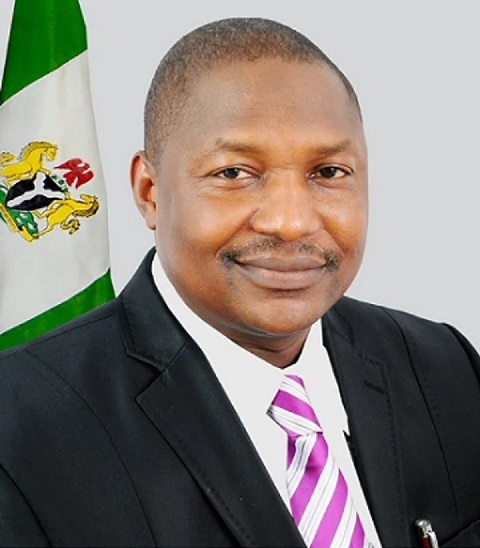
By David Torough, Abuja
The Economic and Financial Crimes Commission (EFCC) said former Attorney‑General of the Federation and Minister of Justice, Abubakar Malami, will face a team of interrogators at its office daily throughout December.A credible source in the EFCC said on Monday that the daily appearance was part of an ongoing investigation into the whereabouts of an alleged 490 million dollars Abacha loot secured through a Mutual Legal Assistance (MLAT) request.
The source said that Malami, who was summoned for interrogation by the EFCC on Saturday, was barred from leaving Nigeria for the next one month.According to the source, one of the conditions for his release on Saturday was that he should report daily to the EFCC Headquarters in Abuja for further interrogation.The source said Malami would have to appear daily at the anti-graft office due to the volume of the investigation and the seriousness of the charges against him.”We seized his passport, it is the normal routine during investigation, but he has to report at the EFCC headquarters in Abuja every day for the next month.”He will be reporting for further investigation throughout December.”He will be reporting every day, starting from Dec. 1st to Dec. 31st.He will appear before the team of investigators for the entire month of December.”He will be reporting to EFCC for investigation for the period because of the volume of the investigation and the seriousness of the charges against him,” the source added.According to the source, a fact sheet on the former minister revealed that Malami had several issues to clarify with the EFCC within the coming weeks.“We have asked him to explain the whereabouts of the $490 million Abacha loot secured through MLAT.“We didn’t say he stole money, but he should account for the loot. This is one of the issues he will clarify to our investigators.”The commission cited the large volume of documents he must review and the need for extensive interviews as reasons for seizing his passport.The source said EFCC would not engage in a war of words but would release its findings after a thorough investigation.Malami, in a statement by his media aide, Mohammed Doka, on Monday in Abuja, however, described the EFCC investigation as a political witch‑hunt.He confirmed he honored an EFCC invitation on Nov. 28, describing the engagement as fruitful and expressing confidence that the probe would vindicate him.Malami described the EFCC’s allegations as baseless, illogical and devoid of substance, insisting they collapse under factual scrutiny.




